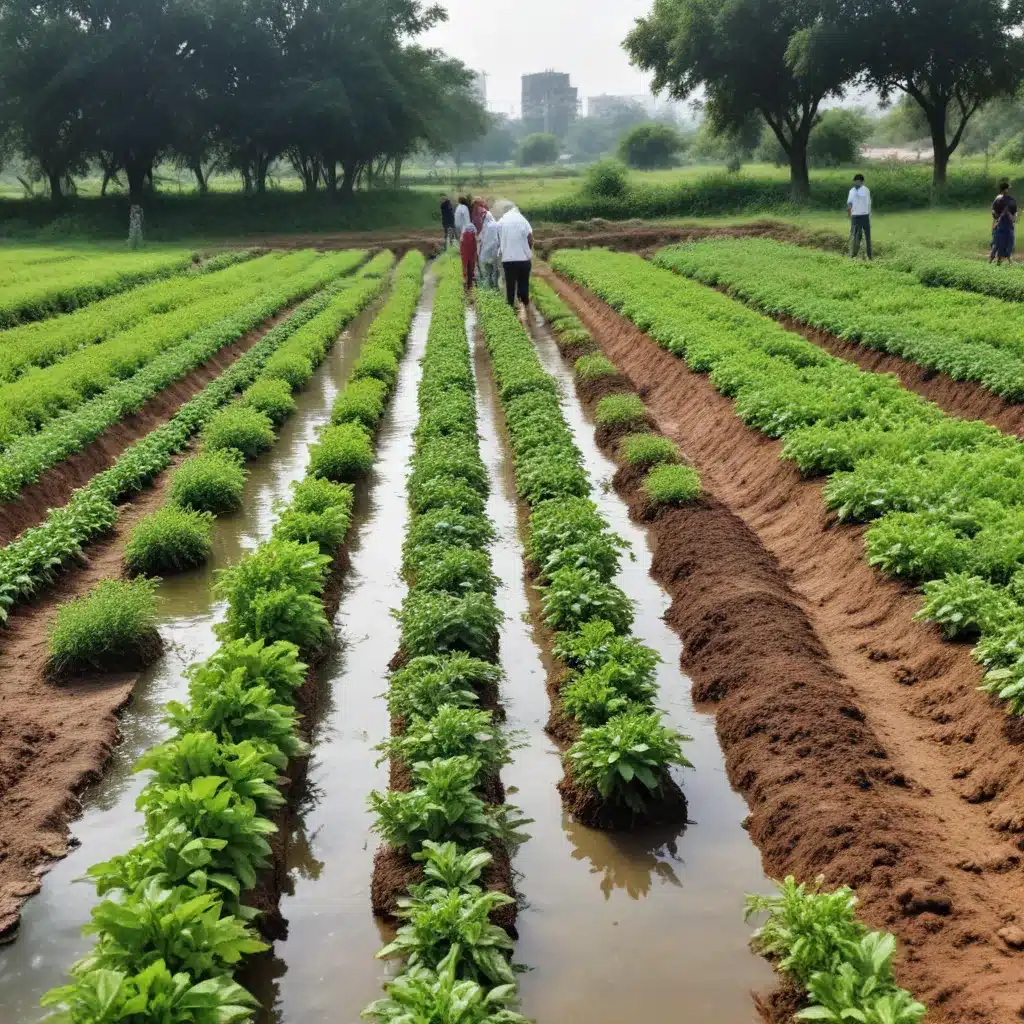
Harnessing the Power of Urban Farming for a Resilient Future
In the face of rapid urbanization and mounting global challenges, the city of Hyderabad is leading the way in leveraging the transformative potential of urban agriculture. This thriving metropolis, home to over 10 million people, has recognized the immense value of integrating food production into its urban fabric, not only to enhance food security but also to promote environmental sustainability and community resilience.
Unlocking the Bounty of Urban Farms
Hyderabad’s urban agriculture initiative is a testament to the city’s commitment to self-sufficiency and local food systems. By repurposing vacant lots, rooftops, and underutilized spaces, the city has created a network of productive urban farms that are providing fresh, nutritious produce to its residents. These urban oases are not only meeting the dietary needs of the population but also fostering a deeper connection between people and the food they consume.
One of the standout successes in Hyderabad’s urban agriculture landscape is the Panchayat Urban Farm, a collaborative initiative between the municipal government and local communities. This innovative project has transformed a once-neglected plot of land into a thriving hub of food production, engaging residents in the cultivation of a diverse array of fruits, vegetables, and herbs. The farm’s proximity to residential areas has not only reduced the carbon footprint associated with long-distance food transportation but also provided a reliable source of affordable, high-quality produce for nearby households.
Table 1: Ecosystem Services Provided by Hyderabad’s Urban Agriculture
| Ecosystem Service | Key Benefits |
|---|---|
| Food Production | – Increased access to fresh, locally-grown produce – Improved food security for urban residents – Economic opportunities for urban farmers |
| Microclimate Regulation | – Mitigation of urban heat island effect – Enhanced air quality through absorption of pollutants |
| Stormwater Management | – Increased infiltration and reduced surface runoff – Reduced risk of flooding and improved water conservation |
| Waste Recycling | – On-site composting of organic waste – Treatment and reuse of greywater for irrigation |
| Biodiversity Conservation | – Creation of habitat for urban wildlife – Promotion of pollinator populations |
| Social-Cultural Benefits | – Improved community engagement and cohesion – Educational opportunities and recreational activities |
Addressing the Food-Water-Energy Nexus
Hyderabad’s urban agriculture initiatives go beyond mere food production, as they effectively address the complex interconnections within the food-water-energy nexus. By localizing food systems, the city has not only reduced the energy-intensive processes associated with long-distance food transportation but also minimized the water footprint of its food supply.
The adoption of innovative urban farming techniques, such as vertical farming and hydroponics, has been a game-changer in Hyderabad. These advanced systems optimize water usage, reducing consumption by up to 95% compared to traditional field farming. This water-wise approach is particularly crucial in a region facing the challenges of groundwater depletion and climate change-induced water scarcity.
Moreover, the integration of urban agriculture into the city’s landscape has enhanced stormwater management and reduced the burden on Hyderabad’s water infrastructure. The increased infiltration and evapotranspiration from urban farms and green spaces have helped mitigate the risk of flooding and alleviate the strain on the city’s water resources.
Fostering Community Engagement and Resilience
Hyderabad’s urban agriculture initiatives have not only brought tangible environmental and economic benefits but have also fostered a deep sense of community engagement and resilience. The Panchayat Urban Farm, for instance, has become a hub of social activity, where residents gather to not only cultivate their own food but also to connect with their neighbors, share knowledge, and celebrate the bounty of their urban harvests.
These community-driven urban agriculture projects have empowered citizens to take an active role in shaping their local food systems, fostering a sense of ownership and civic pride. By providing educational opportunities and hands-on learning experiences, the city has also been able to nurture the next generation of urban farmers, ensuring the long-term sustainability of these initiatives.
Scaling Up for Broader Impact
As Hyderabad continues to lead the way in urban agriculture, the city is actively exploring strategies to scale up these initiatives and amplify their impact. By integrating urban farming into urban planning and development policies, the city aims to create a more holistic and systemic approach to sustainable food systems, resource management, and community resilience.
Through partnerships with local universities, research institutions, and international organizations, Hyderabad is also generating valuable data and insights that can inform the replication of its successful urban agriculture model in other cities facing similar challenges. By sharing best practices and fostering knowledge exchange, the city is positioning itself as a global leader in the field of water-wise, community-driven urban agriculture.
Conclusion: A Blueprint for Sustainable Cities
Hyderabad’s journey in embracing urban agriculture has not only transformed its urban landscape but has also served as a blueprint for other cities seeking to enhance food security, environmental sustainability, and community resilience. By harnessing the power of local food production, water conservation, and community engagement, Hyderabad has demonstrated that urban agriculture can be a cornerstone of a sustainable, equitable, and prosperous future.
As cities around the world grapple with the pressing challenges of urbanization, climate change, and resource scarcity, Hyderabad’s urban agriculture initiatives serve as a shining example of what can be achieved when a city works in tandem with its citizens to create a more resilient and food-secure tomorrow. By replicating and scaling up these successful models, cities can unlock the immense potential of urban farming to build a more sustainable and equitable world.

